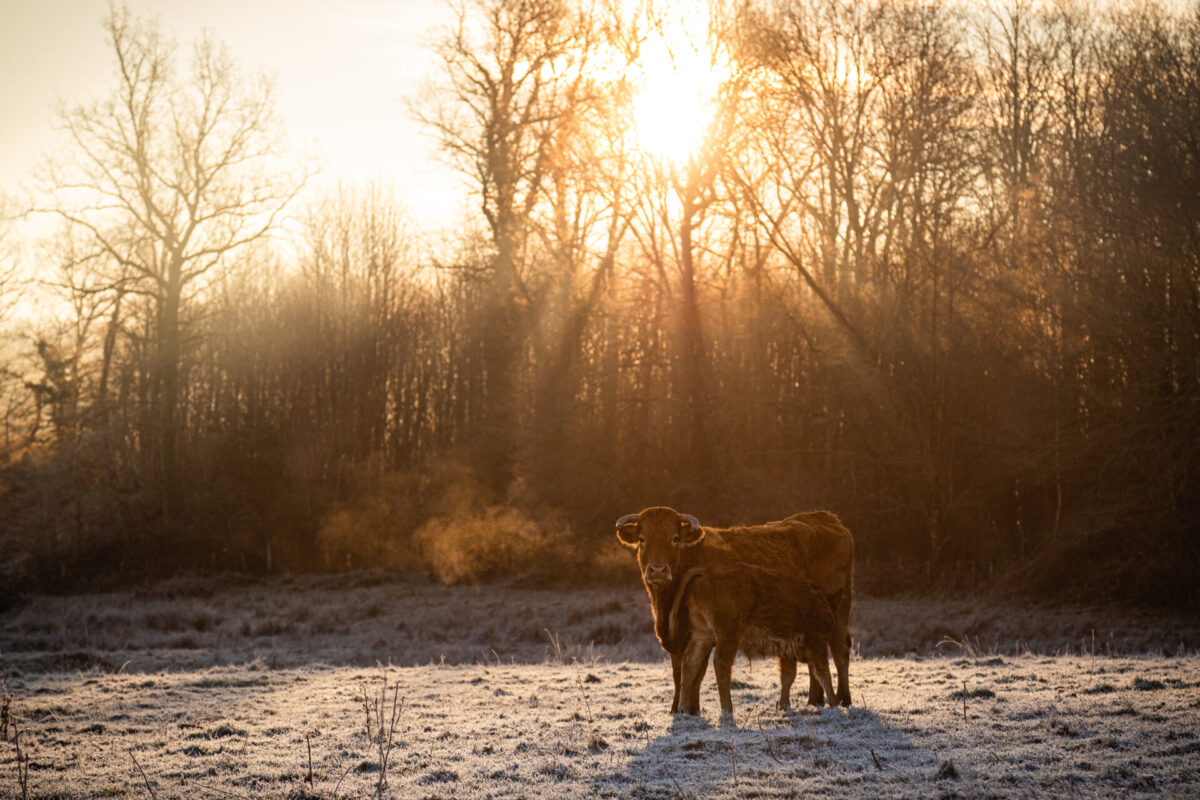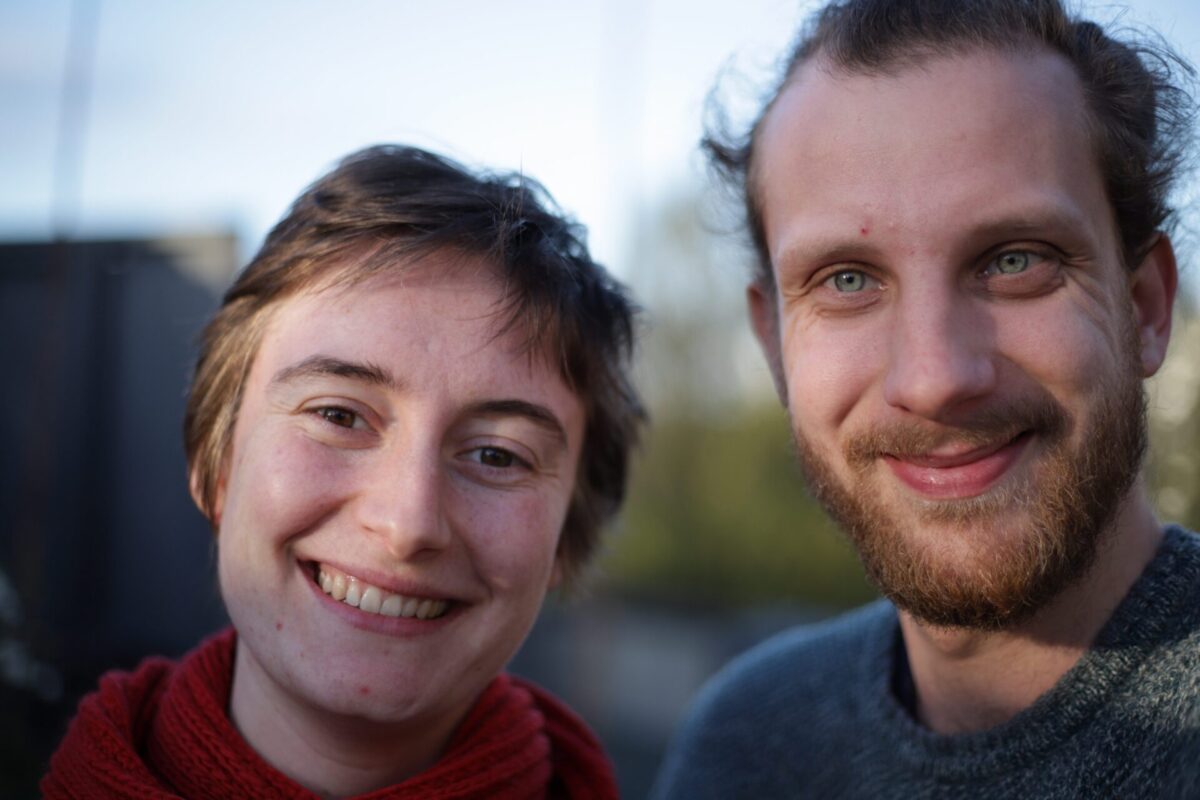Luise and Valentin offer stories of witnessing animal suffering that spurred them to practice with more self-compassion, joy, clarity, and non-judgment.
Many of us have heard Thầy’s teachings about what we consume and how we can look deeply to see whether the planet or other beings have suffered in the production of a certain product. We might already feel a call for us to change the way we eat so that we can contribute to a more peaceful society and world.
Luise and Valentin offer stories of witnessing animal suffering that spurred them to practice with more self-compassion, joy, clarity, and non-judgment.
Many of us have heard Thầy’s teachings about what we consume and how we can look deeply to see whether the planet or other beings have suffered in the production of a certain product. We might already feel a call for us to change the way we eat so that we can contribute to a more peaceful society and world. But day to day, we may find it hard to put these intentions into practice or stick to them consistently; we find ourselves stuck in our old habits. In this article, we share some challenges we encountered while adapting a plant-based diet. We believe we all share similar experiences on our journey to a more loving and sustainable life, regardless of the specific actions we choose.
Confronting the suffering
Right at the beginning, we want to share our stories about how we first decided to change our habits:
Valentin
When I was fifteen, I was travelling back from a summer holiday with dear friends. On the highway in front of us, I saw a truck that seemed to be losing some of the goods it carried, although I couldn’t quite identify what was flying around behind it. It was only at a gas station, where the truck and our car both stopped, that I could see behind the truck’s bars: it transported chickens. In distress, the poor animals had pecked feathers from one another. They looked tattered and continued to attack each other. Confronted with their pain, compassion brought me to tears. It was in that moment that I committed to removing animal products from my diet.
Luise
One day, during a semester abroad in Korea, I walked through a fish market. I had never seen anything like this place before. Living fish in plastic buckets of water were poked with a stick every now and then to demonstrate their aliveness and freshness to potential customers. Crabs with bodies larger than my two fists, and legs as long as my forearms, were crammed into aquariums. In front of me, one crab was taken out of the aquarium by the man selling them. The man started hitting the crab in his hand with a metal tool, again and again and again. The crab twitched and finally went limp. It was dead, “ready to eat.” I started crying. Embarrassed, I tried to hide my tears from the people around me. Never before had I seen an animal brutally killed like this. Never before was I directly confronted with the suffering of the animals we eat. At that moment, seeing this suffering for the first time, I decided I could not eat animal products any more.
Those moments and other similar ones we witnessed over the years, although painful, have been a source of willpower, clarity, and decisiveness to continue with compassion. Our compassion transforms pain into dedicated action.

Harvesting the joy of compassionate living
When we think of a plant-based diet, we may believe that we are sacrificing or restricting ourselves. But are we sure? These perceptions can turn into real obstacles on our journey of living more compassionately. If we don’t look deeply into these perceptions, we might even give up trying to change our eating habits because it feels overwhelming and paralyzing. Not doing something does not have to feel like a painful restriction; instead, it can be a daily celebration of love. For most of us, not hitting strangers in the face does not feel like a restriction of our freedom. It is a natural act of kindness to greet each other with a smile instead, and it feels good. Adopting a plant-based diet can feel the same.
We have experienced that a change of perspective is crucial in order to focus on what we are truly doing. Our invitation is to mindfully and consciously enjoy a sense of embodied compassion; we honor our integrity and commitment each time we choose to act more compassionately by eating a plant-based diet. By bringing our attention to these positive and nourishing aspects of our choices, our practice becomes a vehicle of our growth. There is deep fulfilment from living in line with our sense of justice.
This is a concrete practice that can gradually change the way we perceive our actions. Over time, it becomes a habit to enjoy our conscious and compassionate choices. All the while, we are able to explore and savor a colorful variety of tasty, fresh, and nourishing foods every day of our life.
Taking care of our outrage over the unloving behavior of others
When we started our plant-based journey, a lot of sadness and anger arose. Sadness about all the suffering of sentient beings caused by the eating habits of humans. Anger at all the humans supporting that suffering for their brief moments of pleasure. We started to ask direct questions like, “Do you not care that an animal died for this?” We pressured the people around us. But of course this didn’t work. People rarely perceive such harsh words as invitations for reflection.
So over the years, we practiced looking more deeply into our anger. We found that part of it was a result of wrong perceptions about human beings and their reasons for acting in ways that produce pain. Rather than judging others, we saw that behaviors that make other beings suffer result from deep misconceptions, such as a belief in separateness and an inability to experience interbeing. A lot of compassion arose from that insight. Judging others would mean playing the same game of “you’re wrong and bad, I’m right and good” that is at the core of discriminative, dualistic thinking, which itself causes a lot of pain. Through exploration, we realized how deeply discriminative thinking patterns are ingrained in our cultures and minds. We are very happy to share that today, we experience a lot more gentleness and compassion towards ourselves and others.
Our exploration also led us to a point where we learned to compassionately hold and take care of the outrage and sadness that naturally arise when we see beings hurting each other. Our practice enables us to attend to those feelings with gentleness and tender compassion. For us, that creates inner calm and stability.
For us, over the years, eating a plant-based diet has transformed from a desperate protest to a loving practice for ourselves and the world.
May our collective awakening bloom!

Luise, Source of Unconditional Love (pronouns she/her), and Valentin, Source of True Compassion (pronouns he/him), are currently enjoying the wonderful autumn—sometimes together with their Wake Up Sangha in Aachen, Germany. When they are not on the journey of finishing their energy engineering studies, they both like to learn about loving communication, community building, Buddhist psychology, and the transformation of suffering.

